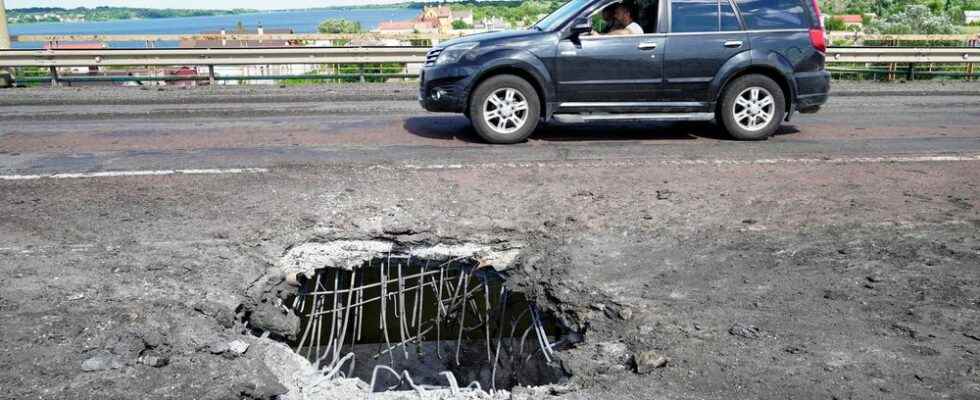The war in Ukraine has just entered its sixth month, and no ceasefire seems able to interrupt the fighting. Emeritus Professor of War Studies at King’s College London, Lawrence Freedman is one of Britain’s foremost experts on military strategy. He explains why the Russian army is in a bad position, despite having conquered the whole of Lugansk Oblast, and evokes the need for Ukraine to regain the initiative.
L’Express: In 2019, you published Ukraine and the art of strategy (not translated). How has kyiv shown strategic mastery since February 24?
Lawrence Freedman: The Ukrainians have been more strategically shrewd than Moscow, whose strategic judgment has been very poor. They had prepared their forces well for a defensive battle and they were able to repel the Russian invaders from the northern part of the country. The next stage is more difficult: they must lead an offensive battle.
Where does the fighting spirit of Ukrainians come from?
They have no choice, they defend their country. And their motivation could only have been strengthened by the discovery of Russian exactions in the occupied zones. Ukrainians accept the losses and are ready to sacrifice themselves so that Ukraine remains an independent and sovereign country. Conversely, the morale of the Russian troops seems very low.
What do you think explains the Russian operational pause in July, after the conquest of the Lugansk oblast?
They had to make a huge effort to achieve this. Now, the Ukrainian artillery, thanks to the weapons supplied by the West, is undermining their logistics and their command. Right now, the Russians are struggling to rebuild their forces.
The reconquest of Kherson and its region is kyiv’s priority. What could such a counter-offensive look like?
It will not resemble the offensive led by the Russians in the Donbass. The Ukrainians cannot rain down shells on the inhabited areas they want to take back. I think they will try to surround Russian units and disrupt their supply lines, to encourage them to retreat. You can already see this in the way the Ukrainians act around Kherson, a bit like the way they fought around kyiv in March. But the supply lines of the Russians were then more stretched and the logistics were more complicated.
A car passing July 21 by a crater on the Antonovsky Bridge in the occupied city of Kherson, which was targeted July 27 by Ukrainian strikes.
Photo by STRINGER / AFP
Isn’t a counter-offensive this summer risky for Ukraine?
There is always a risk. But it is also risky to do nothing. kyiv needs to show military progress to Westerners, as well as to its people. A lack of offensive could be demoralizing for public opinion. There is a risk in both directions, but the balance tips in favor of the need to regain the initiative.
Western weapons allowed Ukraine to resist the Russian army. Are the American Himars rocket launchers, very long-range artillery, a turning point in the war?
I think so. The Ukrainians, thanks to these precision weapons, destroy the ammunition depots which the Russian artillery needs. But it’s not just the Himars; the Caesar cannons of France and British arms also make a difference. The Russians will find themselves in difficulty to feed their artillery. They will have to resort to trucks making trips from the border to the front line, which is not easy. It’s something very annoying for them, and it’s not good for the morale of their troops.
What are the Russians betting on?
They are betting on the decay of Western solidarity with Ukraine. But I don’t believe it, at least not right away. By reducing gas deliveries to Europe, they are trying to divide the Europeans, which does not work.
Do you see this war lasting for years?
The front line can remain like this for a long time, as it did after 2014-2015, especially if the Ukrainians do not make much progress militarily on the ground. But the Russian army is in a very bad state and will not be able to support this war situation in Ukraine indefinitely, at least with its only means and its capacities of production of armament. We will see in the months to come. War is full of surprises. We are never sure of anything.
What strategic lessons do you see since the start of the invasion?
The lessons to be learned relate above all to logistics, its importance in a war of such intensity and the danger of not having enough stocks available. Quantity is no less important than the quality of weapons. The Western camp must continue to supply Ukraine with military equipment, that is its challenge. And Europeans must remain calm despite the pressure of the economic crisis.
